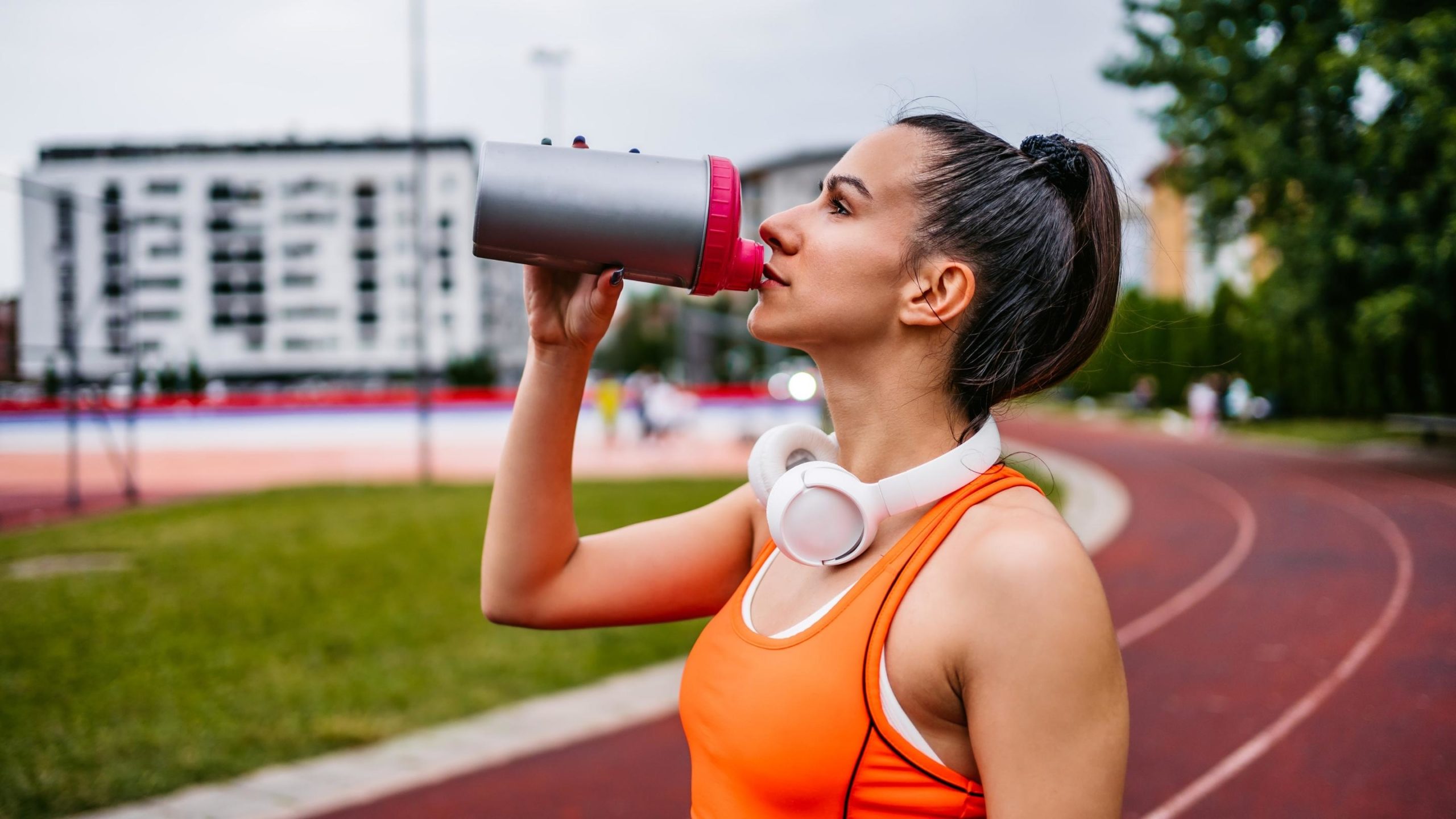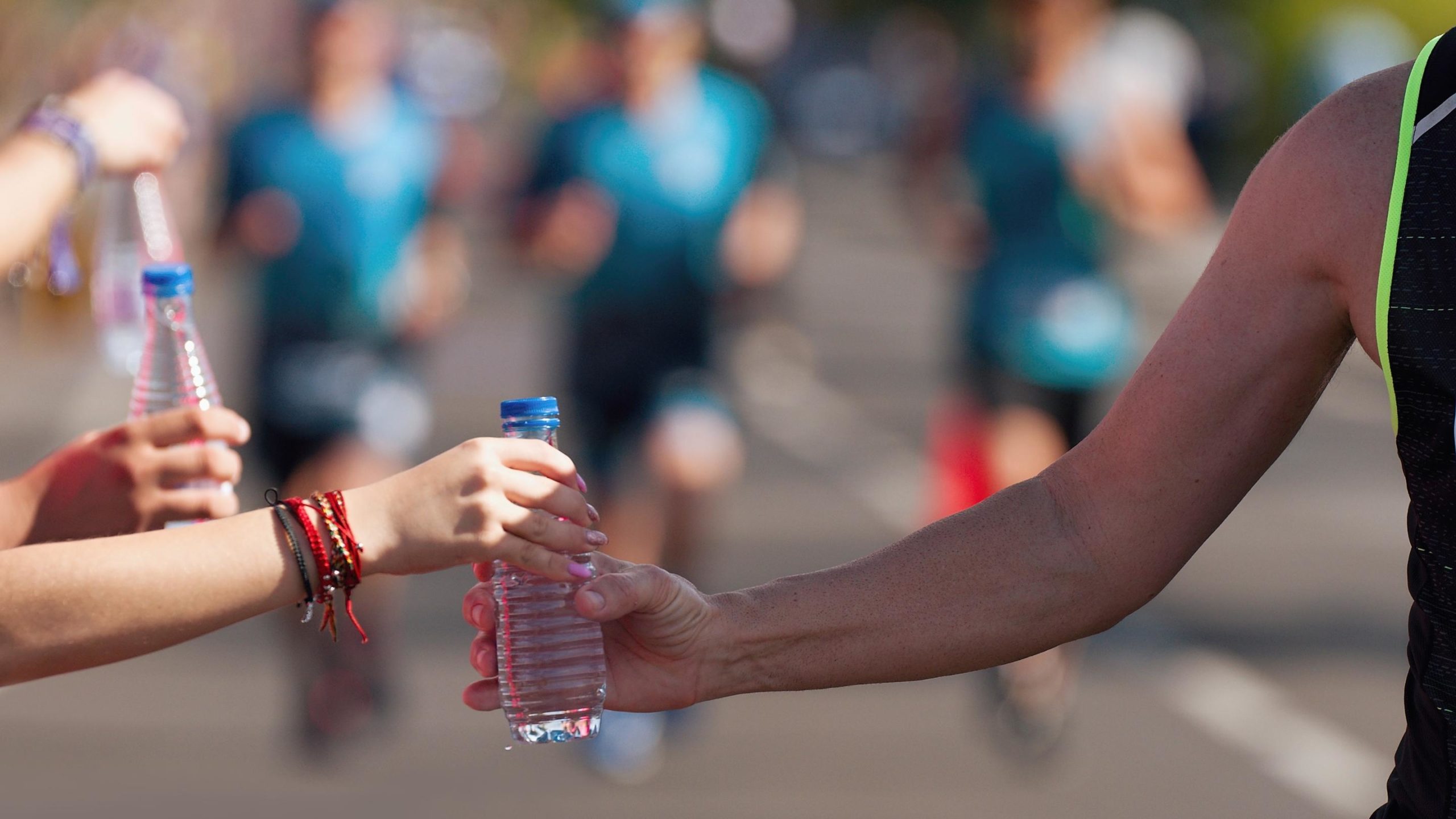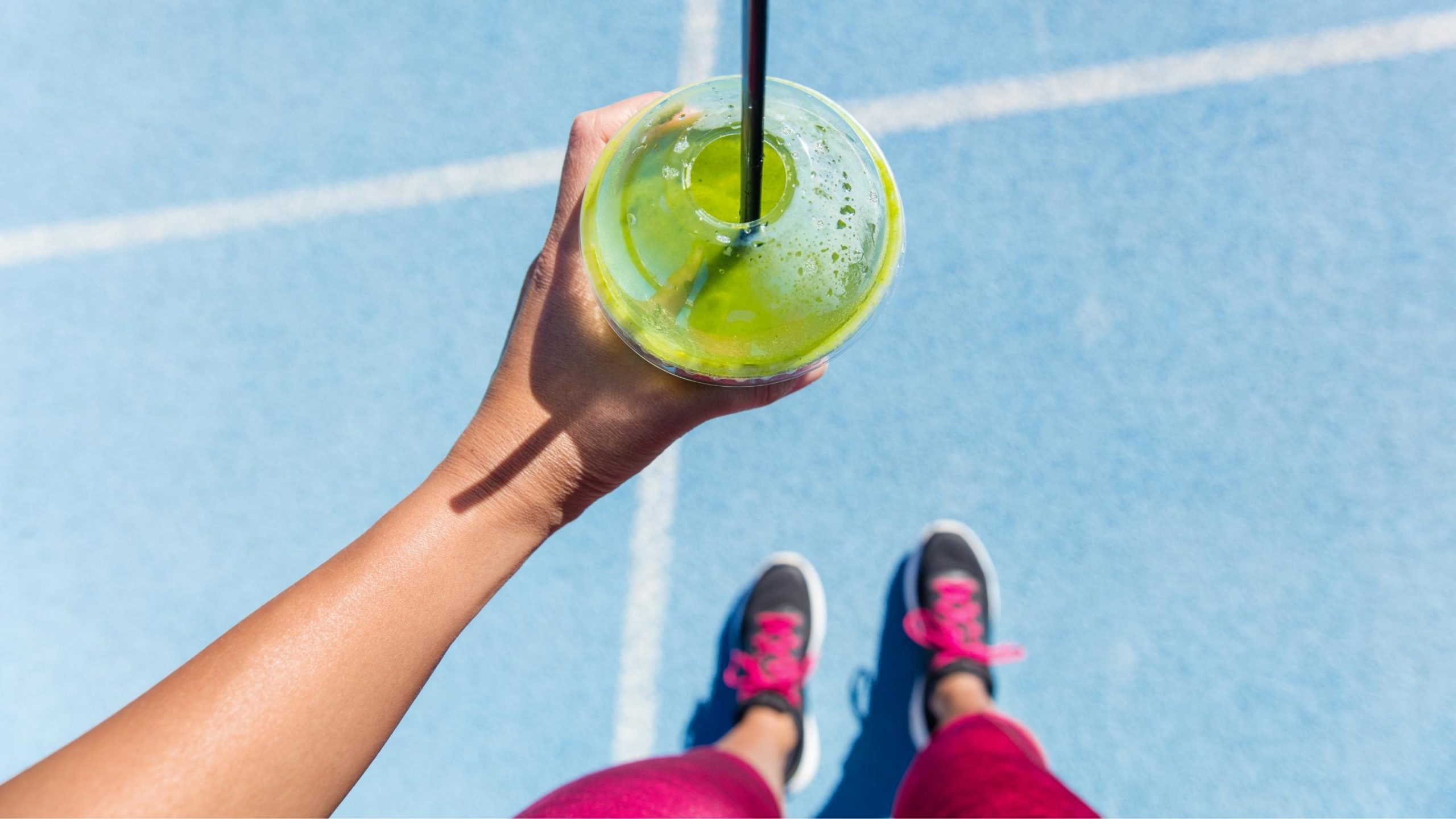Active people who take part in vigorous exercise will often lose salt and other electrolytes. When you run, your temperature will rise, and as a result, your body will need to work to keep it cool and avoid overheating by sweating.
While this is beneficial, you are also losing vital salts and nutrients which are vital for bodily functions including heartbeat, nerve conduction, and muscle contraction.
Key Point: Runners need to replenish by taking in necessary minerals, including sodium, magnesium, potassium, phosphate, chloride, and calcium. These minerals are often referred to as electrolytes, and each play a role in optimizing a runner’s performance.
Here’s a runner’s guide to electrolytes, because health-conscious people like you need to know the benefits of electrolytes!
Table of Contents
- Why Hydration Isn’t Enough
- Factors Affecting Electrolyte Loss
- Before a Run
- During Run
- After Run
- Method of Electrolyte Replacement
Why Hydration Isn’t Enough

Running causes you to lose electrolytes through your sweat, which means your muscles cells won’t be able to generate the needed nerve impulses integral to controlling muscle contraction. This can cause muscle weakness and fatigue–a runner’s worst enemies!
As runners, it is highly important to hydrate and ensure you have the proper electrolyte levels recommended for optimum performance. This cannot be accomplished by drinking water alone.
- You need to replace the sodium chloride that you lose during exercise, which water doesn’t provide.
- Failure to do this can lead to dangerously low levels of sodium. This condition is called hyponatremia and it can be deadly.
- Moreover, the absence of other major electrolytes like chloride, potassium, magnesium, and calcium can result in electrolyte imbalance.
- An electrolyte imbalance may lead to numerous physical issues like more frequent muscle cramps, muscle fatigue, dizziness, nausea, confusion, and even irregular heartbeat.
Bottom Line: Proper hydration isn’t enough to maintain the optimal electrolyte balance that is needed for runners to perform at their best.
The Four Major Electrolytes
This brings us to the importance of electrolyte balance, especially for runners who undergo intense physical exertion.
Pay attention to the four major electrolytes:
Sodium
This helps regulate proper fluid and electrolytes balance, an essential factor to avoid dehydration. It is also known to assist with muscle contraction and nerve function.
Potassium
Used in different vital functions in your body, sufficient potassium permits the proper regulation of electrolytes and fluid that your body stores, promoting glycogen storage and aiding in the transportation of nutrients.
Magnesium
Magnesium is essential in energy production. It is also a huge help when it comes to muscle contraction, bone health, and muscle recovery.
Calcium
Known for its importance in bone health, calcium also aids in blood clotting.
Summary: Sodium, Potassium, Magnesium, and Calcium are the most important electrolytes for runners to consider.
Factors Affecting Electrolyte Loss
Electrolyte loss is not only caused by grueling athletic activities. There is a wide range of factors that can affect the loss of electrolytes in your body.
It is important to identify them so you can avoid these factors in the future. Otherwise, you will find it hard to perform at your peak.
Weather
One of the factors that can cause electrolyte imbalance is temperature and humidity.
- Prolonged exposure to particularly hot and humid weather can cause you to sweat excessively, which can put a strain on your body as you lose certain electrolytes.
- This can potentially lead to heat cramps, affecting large muscle groups in your legs.
Summary: Too much heat and/ humidity makes you sweat heavily, and feel dizzy, nauseous, and fatigued.
Run Duration
The duration of your run can affect your electrolyte levels.
- The longer you run, the more you need to replace the lost electrolytes.
- Long distance running causes you to sweat more, burn more calories, and place more strain on muscles.
Summary: Preferably, you need to take sports drinks when replenishing electrolytes if you are running between 30 to 6o minutes or more. If it is just less than an hour, it is not quite mandatory.
Run Intensity
Rigorous running means you will be sweating more, which can use up a lot of body fluids and electrolytes.
- The higher the intensity of your run, the more you need to replace electrolytes you lost.
- Sprinting and high-intensity exercises can drastically raise body temperature and the amount you sweat.
Summary: Even when exercising for shorter amounts of time, high intensity running can quickly deplete your body of electrolytes.
Clothing
The clothes you wear during intense physical activities like running can increase your sweat levels, which can affect your electrolyte balance.
- There are clothes that are designed to help you stay hydrated and produce the best performance.
- These clothes typically are lightweight and allow your skin to breathe and cool off.
Summary: Thick clothes or clothes that cause drag can cause you to sweat more or become too hot, and in either case the body will be losing electrolytes at an accelerated rate.

Before a Run
Proper hydration is an important consideration to many athletes, even more so if you are running.
All sorts of training and preparations come before you do the actual running. This includes knowing exactly how you can enhance your performance by properly hydrating during hard training sessions.
While some might think this is all about drinking as much water as you can, the best approach lies in appropriately preloading your sodium levels in a smarter way.
Key Point: Properly preparing for a run comes down to more than hydration, and ideally involves preloading on key electrolytes.
Preloading with Electrolytes
Factoring in the duration and intensity of your exercise, you may need to add around 500ml of fluid to your pre-snack routine, at least two hours before your run.
As proven by NASA, adding more sodium to your drink can make it more effective when retaining fluid in your body and bloodstream. This reduces the chances of dehydration. It also ensures that your body can afford to shed electrolytes through the natural process of sweating–without incurring nasty side effects.
Pre-loading with electrolytes is a must before you run, but it can be problematic to over-hydrate.
Key Point: You need to find the balance between taking in too much extra fluid and taking too little. Too many fluids entering your bloodstream can create gastrointestinal issues that can leave you feeling bloated and lethargic.
3 Things to Remember When Preloading Electrolytes
Keep these suggestions in mind when you are pre-loading on electrolytes during your pre-run routine.
1. Choose a Strong Electrolyte Drink
Make sure that the electrolyte drink you choose is strong enough, preferably around 1,500mg of sodium per liter of water. This should be drunk the evening before your scheduled training.
Another round of strong electrolyte drinks is needed about 90 minutes before you begin your rigorous activity.
2. Give Your Body Time to Absorb Electrolytes
Ensure that you drink it all at least 45 minutes, but ideally 90 minutes before you start as this will allow your body enough time to absorb the necessary electrolytes and lose the excess.
Drink water in a smart way in the time before your run. If you drink too much fluid in addition to an electrolyte drink, you might experience excessive urination and end up peeing out the much-needed store of electrolytes.
3. Consume a Water-Based Electrolyte Drink
It is better to consume a strong electrolyte drink mix in water so you won’t overdo it. Drinking too high of a dose of electrolytes without the proper fluid-ratio can overtax your kidneys, and even increase levels of dehydration.
Bottom Line: Properly pre-loading on electrolytes comes down to choosing the right dose, giving it time to absorb, and consuming it with the right amount of fluids.
During Run
Replenishment of fluid and electrolytes does not stop after the initial preparations.
You need to ensure you are replenishing 80% of your average fluid loss during your run, especially if the duration takes more than an hour. But our bodies sweat differently, and it’s important to pay attention to this.
- If you are a heavy sweater and a salty sweater at the same time, you may need a higher amount of sodium per liter of fluid.
- This means heavy sweaters have to consume around 700mg of sodium per liter, in comparison to non-heavy and non-salty sweaters who only need about 300gm.
- While it is hard to determine the exact amount of sodium needed for runners as it can vary from individual to individual, you can use at least 500mg of sodium for every hour of exercise as a baseline. You can then decide to increase from there, depending on your needs.
- Remember that electrolytes help control muscle contraction properly, which can impact your performance during the run. So if you notice tightness and cramps, it might be time to take more.
Bottom Line: Depending on how much you sweat during a run, you’ll need to adapt your electrolyte replacement routine.
After Run
Just because you have finished your run does not mean you can forget electrolyte replacement.
Your body needs electrolytes after rigorous exercise to facilitate optimal recovery.
- You need to replenish electrolytes with recovery sports drinks and electrolyte-filled foods. Pairing this with a well-balanced diet will ensure your body’s fluid balance is maintained.
- You will want to incorporate fruits like strawberries, peaches, tomatoes, and watermelon.
- Vegetables are also a must, including lettuce, kale, celery, cauliflower, broccoli, cucumber, and spinach. Following a healthy diet will ensure balanced electrolytes are maintained.
Not only do you get the fluid balance and electrolytes from these healthy options. You will also gain a range of vitamins, fiber, and phytonutrients.
Bottom Line: Proper sports nutrition becomes more important after a run, where you can balance electrolytes and hydration with a healthy diet and the occasional recovery drink.

Method of Electrolyte Replacement
The way you replace essential electrolytes that you lose during a run may vary.
Some rehydrate with electrolyte drinks. Others choose to take electrolytes supplements. Is there any real difference between these?
Electrolytes Stick Packs (Powders)
One of the most popular methods of electrolyte replenishment is the electrolyte stick packs.
These are in the form of powders containing essential vitamins and minerals that you need to mix into a glass of water and consume it like you would a punch mix. Electrolyte powders are often water-soluble and feature flavors for easy drinking.
They prove to work faster than regular water alone, containing more electrolytes than conventional sports drinks.
Summary: Electrolyte powders provide a high dose of electrolytes, while also allowing you to tailor the amount of fluids used–perfect for those who want to tailor their hydration regimen to a specific activity.
Electrolyte Gels
Another option to replace electrolytes for runners is electrolyte gels.
These gels are common in many marathons as they are designed to top off glycogen stores used during long-distance running.
They are quick to absorb into your body, which makes them highly effective.
Summary: Electrolyte gels are a favorite among long-distance runners, due to their quick absorption and ability to increase glycogen stores.
Electrolyte Tablets or Capsules
Lastly, you may opt for electrolyte capsules.
These electrolyte supplements are quick and easy to take and can provide adequate hydration during the run.
Summary: Most electrolyte tablets can provide you with enough electrolytes, including potassium, sodium, magnesium, and calcium. But you’ll need to make sure you’re taking them with the correct amount of fluids to avoid taxing your kidneys.
